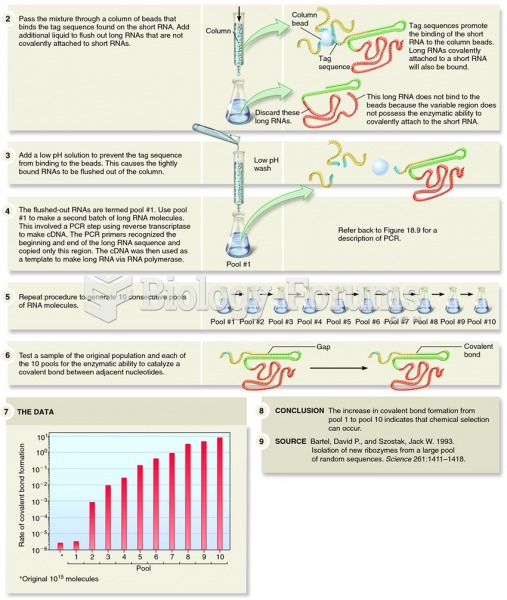|
|
|
More than 50% of American adults have oral herpes, which is commonly known as "cold sores" or "fever blisters." The herpes virus can be active on the skin surface without showing any signs or causing any symptoms.
The effects of organophosphate poisoning are referred to by using the abbreviations “SLUD” or “SLUDGE,” It stands for: salivation, lacrimation, urination, defecation, GI upset, and emesis.
The first monoclonal antibodies were made exclusively from mouse cells. Some are now fully human, which means they are likely to be safer and may be more effective than older monoclonal antibodies.
Since 1988, the CDC has reported a 99% reduction in bacterial meningitis caused by Haemophilus influenzae, due to the introduction of the vaccine against it.
The horizontal fraction bar was introduced by the Arabs.
 Browning and Gunning demonstrated that placental transfer tissues increase plant reproductive succes
Browning and Gunning demonstrated that placental transfer tissues increase plant reproductive succes
 Many fathers and infants form secure attachments. Fathers’ style of interaction differs somewhat ...
Many fathers and infants form secure attachments. Fathers’ style of interaction differs somewhat ...





